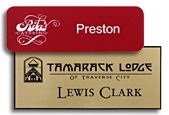Change is something every business is always dealing with. It is an inevitable process that every company must go through. This means that adapting to change and flexibility in business is an absolute must. These two things are essential for every business owner to grasp and understand how they work and why they are important.
Adaptability can be defined as creating modifications or changes in oneself to adapt or suit the new environment. For a work environment culture, it connotes being opened to new ideas, innovations, or alterations. Someone with this skill can work independently or in groups, or perform tasks not designed only for a single individual.
Workplace flexibility emphasizes the willingness and ability to adapt to change, particularly regarding how and when work gets done. In a flexible workplace, the needs of both employee and employer are met. Workplace flexibility is often used as a tool for retaining and engaging employees. It can also help an organization reach its goals thanks to improved productivity.
In essence, adaptability is about being willing to modify your behavior and actions to meet your business’s future needs. This includes being flexible in your business dealings with your employees and your customers. Find ways to help your business feel more grounded while understanding the impact of each decision you make will affect your business in the long term.
A business is nothing without its customers.
Making sure that your business knows your customer’s needs is key to your survival. Remember that without your customers, you don’t have a business. So, you need to make sure that everything your business does is to find and retain its customers. That includes making adapting to change where and when necessary.
Every transaction your customer has with you is actually an entire journey, and at every step of this journey there is an opportunity to either delight your customer or have your customer suffer a pain point.
Consumers don’t just buy your product or service. They are only with your business because they trust how you make them feel and how you provide solutions to their problems. Yes, this means that customer needs are typically emotional, not logical. The more you know about each of your customers, the better you will be at communicating with them and meeting their needs. Here are some ways you can do this.
Using Signage
Any business will significantly benefit from using signage around their office or store. From simple directional signs to more informative signs containing store hours or company policies, engraved signs and plaques are definitely beneficial to have around. Use these identifiers around your business to make everything easier while you are adapting to change and flexibility.
By hanging these signs around your business, you establish ground rules for both employees and customers. These signs also help with communicating openness with your clientele. All conversations start better when people are comfortable. And using signage provides customers and employees the opportunity to be transparent with each other.
Approachability and Adapting to Change with Name Tags
For the majority of retailers, name tags are a business necessity. And, because name tags are permission slips inviting conversation, they encourage engagement. This is due to their primary function being to personalize and humanize each person. Especially for a business whose focus is customer service and face-to-face interaction.
While it may seem like a small thing, a simple way to avoid your customers feeling awkward is to provide name tags for your employees. These tags can immediately remove any barriers or concerns a customer may have. They allow customers to ask questions and express these concerns to those who care.
In turn, this establishes trust and keeps people coming back to your store. So, no matter your location or business, name tags are here to help. From security to branding, retail establishments have almost become synonymous with name tag use.
Marketing with Ribbons
From window displays to goody bags for new customers, personalized ribbons are sure to make your customers trust you. Brand each ribbon roll with your company logo and wrap it around nearly anything (including display pieces). Badge ribbons are a great asset to your name tags as they help further identify and distinguish your employees in the workplace.
All other custom ribbons are also here to help your business succeed. No matter your choice, make sure your color, imprint and logo are consistent with your established brand. “Most businesses understand that branding and marketing go hand-in-hand. However, there are some things to consider. Even large companies use custom ribbon marketing. Promoting your brand with personalized ribbons is almost a must in the world today. From wrapping a purchase at a large department store to sending out event invitations, every business can, and should, benefit from using ribbon branding.”
Building Customer Relationships
The key to any good relationship is communication. Keeping open lines between yourself, your employees and your customers is crucial to your success. Without this communication, those customer relationships that keep you in business will fall short of where you need them. And remember that without your customers, you will go nowhere.
Connecting and engaging with customers is important on different levels. First, you must meet the standards that the customer expects from you. This could mean products or services rendered. Make sure that everything your business does is for the customer. Not only will this help with the retention of current customers, but this can also bring in others that your clientele tells about your wonderful company.
Second, engage the customers on their level. If they expect one thing and you always go above and beyond those expectations, they are sure to keep coming back. Third, never stop trying. Whether this means up-selling to specific customers or reaching out after every purchase made, make sure your customers know how much you appreciate their business.
Don’t Forget Your Employees
Simply put, the happier your employees are, the harder they will work. And, the more they work, the better the customer service they will provide. So, as a business owner, you must make sure that your employees remain happy. This, in turn, will make it so that your employees take pride in their jobs and continue working for you. When customers see that you can retain happy employees, they will continue their patronage to your business.
Studies have proven that employees often perform better at the jobs when they feel appreciated. Give each employee a personalized ‘thank you’ every now and then, and introduce an employee of the month program, if you don’t have one already. If you can help your employees take pride in their jobs, their work performance will also improve.
When your employees are happy, they become more flexible in their jobs. They typically don’t say, “That’s not my job,” or, “Do I have to?” when you ask them to go above and beyond their duties. So, a happy employee is a busy one; and they are easier to work with. Help them be happy by recognizing their input and influence in your company. Take pride in their jobs, and in turn, they will also find pride in working for you.
Adapting to Change and Being Flexible
A flexible work environment has many benefits. It helps workers achieve greater work-life balance, leading to increased employee satisfaction and improved morale. That in turn means employee turnover is reduced, as is the cost to recruit and train new hires. Loyalty, engagement, and retention is improved, which helps a company’s productivity and its bottom line.
Remember that the key to any relationship is open communication. That means while you are working with your flexibility and adapting to change, you keep your lines with your employees and customers open. This way, they will always know your goals and that they can continue to trust in your business.




3 thoughts on “Adapting to Change in Business”